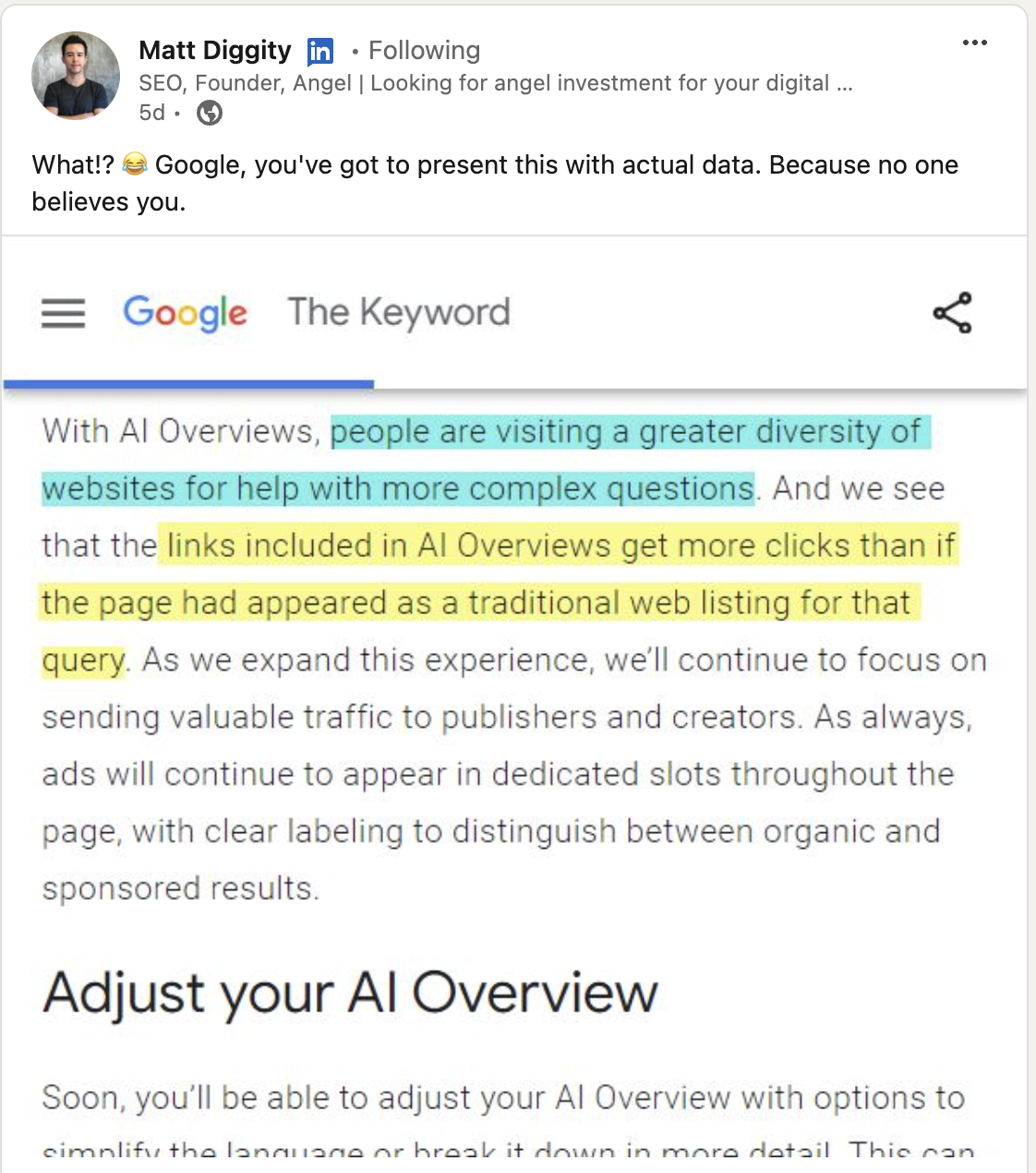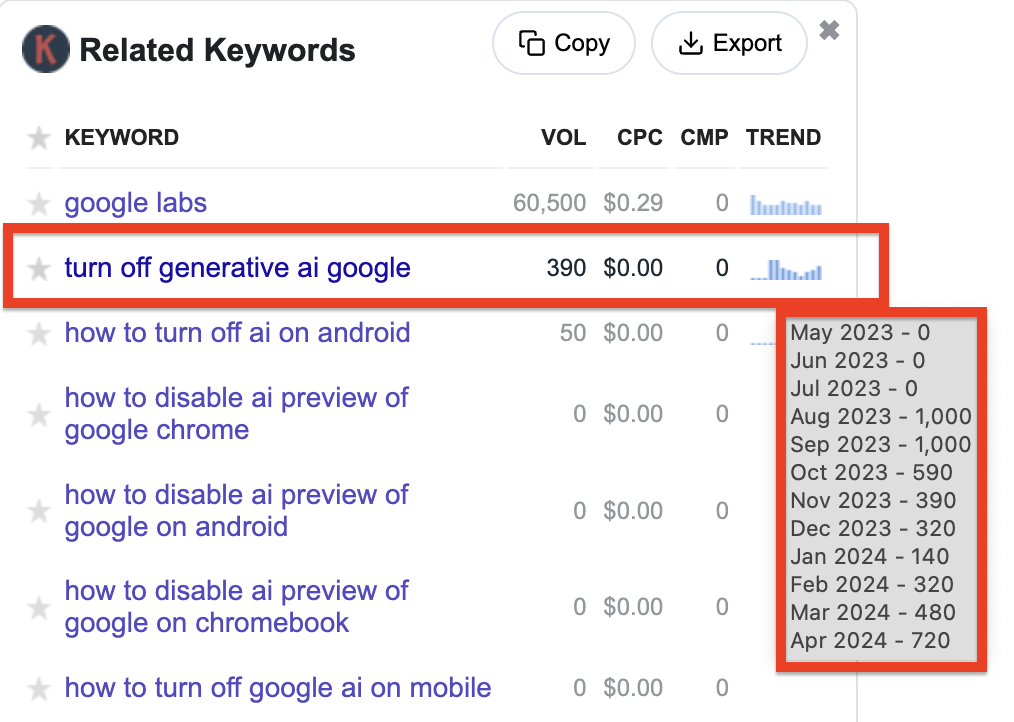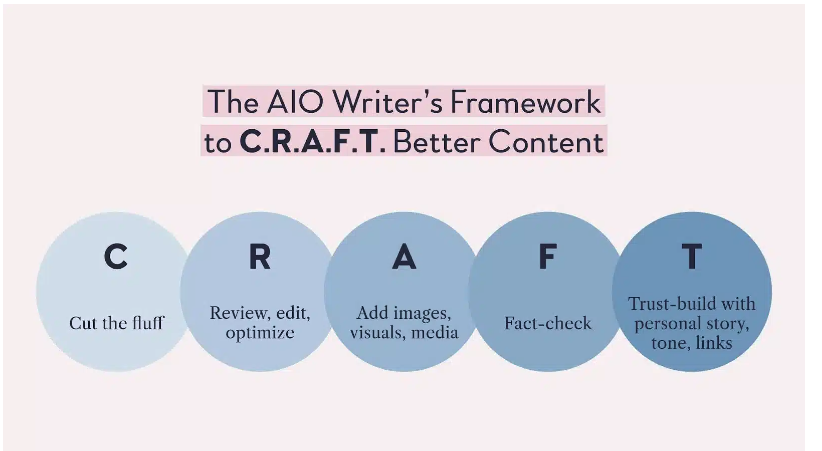“AI will kill SEO for good” is the battle cry of many SEO professionals today as all aspects of search become ever more reliant on AI. It’s a hyperbolic reaction that those who don’t move on with the times cling to for safety.
While it’s true that AI will largely transform the way users find search results or how websites create content in the next few years — those who prepare for the future of search rather than fear it will fare well.
Indeed, old SEO strategies will not work as well as Search Generative Experience (SGE) and AI overviews become the norm. In addition, SEO teams will need to adapt their strategy to optimize more for voice search as people move away from keyword-based search and rely more and more on voice assistants.
In this article, we break down how voice assistants and AI are changing how SEO will be done. We also discuss new search updates that are leading the future of search.
But first, let’s get one thing out of the way:
Is SEO Dead?
No SEO professional who has been around for the last 15-20 years is a stranger to this question. Every Google update is often marked by panic that gets many asking this question again. But just like always, the answer remains no.
SEO can’t die until the search is dead.
SEO experts like Nathan Gotch have also supported the view that although SEO is changing, it will continue to be an important part of marketing.
“SEO will remain the #1 inbound marketing method for a long time. Yes, it’s changing, but the world is always changing. Nothing stays the same. Expect change and adapt.”
Before you learn to adapt to it, you must understand the changes that are happening. One of the major ones is the introduction of AI chat in search engines.
Changing Search Overview: SGE and Microsoft Copilot
Google and Bing have both rolled out their respective generative AI experiences to allow users to get a chat-based answer for their search queries. Basically, instead of showing multiple web pages in the results and letting users select the one that appeals most to them — the answers are now available instantly with an AI preview.
This PDF by Google claims that AI overviews will greatly improve the search experience for users in the future. While the commitments look promising, the AI overviews thus far have been disappointingly inaccurate. There’s clearly a lot more work needed on the part of these search engines to make this the sole way to search.
That being said, AI overviews are likely to be perfected in the near future. SEO consultants need to start looking for ways to pivot to not be caught off-guard.
Here are a few things to note about Google and Bing’s generative AI previews:
- Generative AI will affect how SEO teams optimize content. However, it will still be necessary to provide high-quality, informative content that directly answers user queries, so the basics aren’t changing.
- Your SEO titles will need to be catchier to attract clicks in chatbot-style search results.
- The visual aspect of search results, such as website favicons, will gain more importance in AI-powered search. This will definitely impact CTR.
As we debate whether to adapt to this search experience, there is a school of thought that suggests that these will not necessarily work out as these search engines expect. Many SEO professionals also claim that the chat results are a glorified version of featured snippets and paraphrased content.
Their accuracy at this point is laughable as well. Lil Ray has expressed concerns about the AI results shown by Google on X:

Matt Digity also doesn’t buy Google’s claims at face value:

It might also be surprising, but people have already started searching for “how to disable AI preview.”
Check out how the searches spiked in April 2024.

While it’s better to prepare for the AI experience rather than hope for it to doom entirely, what ultimately happens remains to be seen.
Will Google continue with AI previews? Will people adapt to it, and will the critics accept it? Only time will tell.
The Catalysts of Change and Their Impacts on Search
AI Content
Another way AI is changing the way SEO is done is through AI content. Now anyone can produce hundreds of blog articles in a matter of minutes. This has put an overwhelming amount of pressure on Google’s crawling and indexing resources which have to deal with millions of new links every day.
With Google Core Updates, it has been targeting spammy or low-quality ai-generated content that doesn’t provide any original value to users.
Google’s guidelines clearly state, “Using automation—including AI—to generate content with the primary purpose of manipulating ranking in search results is a violation of our spam policies.”
That being said, the content generated with or without AI is not a problem as long as the content is helpful and original and solves your user’s query. In most cases, AI content just needs to be edited and reviewed by a human editor for accuracy to be good to go.

Voice Assistants
The number of voice assistants in use is expected to reach 8.4 billion in 2024. This means that SEO consultants have to start optimizing for voice search as a priority.
That’s easier said than done, though. Unlike typed searches, voice search doesn’t rely on just keywords to show the best answers for a user’s query. Users use natural speech patterns to ask questions and receive answers. Spoken queries tend to be more relaxed, conversational, and longer.
You can see this change reflected in how featured snippets are becoming more important in search results. Featured snippets also mimic natural questions and correlate with voice searches.
So a good way to optimize for voice searches is to do what you do to optimize content for featured snippets, i.e. include questions as part of your H2/H3s in the blogs and write direct answers below them.
Another way to improve your chances of ranking in voice search is to prioritize local SEO. A huge number of voice searches tend to be “near me” searches and local businesses can really benefit from this.
Learn more about optimizing your content for voice search with our detailed guide.
Local and Mobile Searches
Consider these facts:
- 63% of Google searches happen on mobile phones.
- Mobile traffic accounts for 58.67% of the total web traffic.
- Of all the mobile searches, 57% tend to have local search intent.
- Google has shifted to mobile-first indexing, meaning that it primarily uses the mobile version of a website for indexing and ranking.
These facts highlight that mobile and local SEO are going to become even more important in the future. And it makes sense why: AI overviews can only show answers for “What”, “Why”, and “How” types of questions — they cannot satisfy commercial intent searches. When SGE is the norm for these queries, going after commercial intent keywords will become even more important.
As commercial searches need to offer searchers a variety of options to choose from, the normal typed search will likely continue to be the norm for these types of queries.
How to Adapt to Changing Search: 4 Strategies That Still Work in 2024
1. Prioritize Quality Content

Search engines depend on providing users with accurate information. In the absence of that, no one would use search engines. So, there’s every chance that quality content that offers original or practical advice will continue to matter a lot for SEO.
Here are some tips for creating original content rather than simply paraphrasing another website:
- Add a personal touch to the content that depicts your experience.
- Fact-check the information you provide. Also, cite your sources and make sure they are updated.
- Include expert quotes, data, and quotes.
- Go beyond what is already mentioned on other pages.
- Create actionable content that provides everything a user needs to solve the problem they are seeking answers for.
2. Focus on Social Signals
Google has never officially stated that social signals are a ranking factor. However, their SEO starter guide also claims that “good content gets shared”. It also hints that this helps build the website’s online reputation.
As SEO and search continue to change, it’ll be wise to not put your eggs in one basket anyway. Building social signals can help you drive additional traffic to your website.
Focusing on social signals also helps you broaden your scope as a marketer and think of ways to integrate SEO with other marketing channels effectively.
Search Engine Journal puts it best:
“Social media isn’t a ranking factor, so it won’t directly help your rankings. While there’s no direct ranking correlation between the two, the benefits of social media do feed into SEO. And if you’re trying to improve your SEO, you need to invest in social.”
Here are some ways to build social signals:
- Encourage more user engagement by ending your articles with a “share” or “comment” CTA.
- Respond to comments and messages.
- Create engaging content with catchy titles that people want to share.
3. Integrate Human Expertise with AI
AI is getting smarter, but it has miles to go before it can replace human expertise. The future demands that you leverage AI tools to create marketing content faster but integrate human experience in it to retain its appeal.
For instance, AI can help you create the first draft, but a human editor can make it more targeted for your brand’s target audience.
Remember, AI isn’t a replacement for humans. It’s a tool to help speed up human productivity, not replace their experience or creativity.
4. Analyze and Monitor Mobile SERPs
As mobile devices continue to dominate web search, it’s crucial to closely monitor and analyze mobile search engine results pages (SERPs) to stay competitive and identify opportunities for optimization.
To effectively analyze and monitor mobile SERPs:
- Use tools like Google Search Console and Semrush to monitor your mobile search performance.
- Perform manual searches on mobile devices to see how your website appears in mobile SERPs. Pay attention to your rankings, the appearance of your titles and descriptions, and the presence of any SERP features.
- Regularly update and optimize your mobile website based on your SERP analysis and user behavior insights. Conduct A/B tests to determine the most effective strategies.
Conclusion
The search landscape will look quite different in a few years, thanks to generative AI search experiences, AI content, and voice assistants. Traditional SEO methods will need to be thrown out and replaced with more holistic marketing approaches.
Sure, permanent change to SEO will come with their challenges. But those smart enough to embrace AI and voice search will likely come out of this storm unscathed.
While we are yet to witness the changes search engines will undergo completely, we hope that the future of search will be decided by all human entities that are ultimately impacted by it: the SEO consultants, the users, and business owners like yourself. Experts are hopeful that search engines will find a way to make sure all three parties benefit from the new search experience to some capacity.










